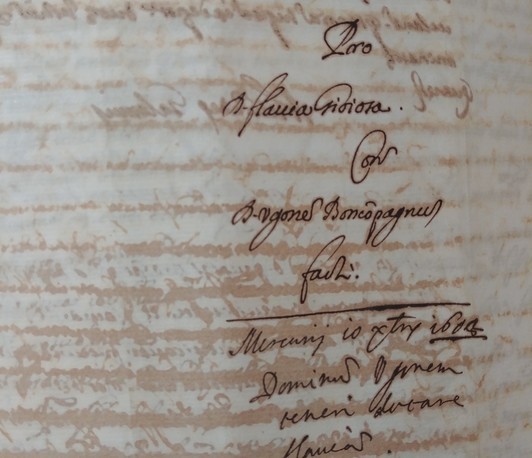The trials of the Boncompagni neophytes before the Roman Rota (early 17th century)
- Date: Oct 9, 2023
- Time: 05:00 PM - 07:00 PM (Local Time Germany)
- Speaker: Isabelle Poutrin (University of Reims Champagne-Ardenne)
- Location: mpilhlt and online
- Room: Conference Room (Z01)
- Host: Benedetta Albani
- Contact: martins@lhlt.mpg.de

Between 1566 and 1605, some forty members of a family of Jewish bankers of Rome, the Corcos, were baptized under the patronage of the popes, forming a new family in Roman nobility, the Boncompagni. The heads of the families, initially pawnbrokers in the ghetto, baptized with highly advantageous social and financial conditions, became powerful businessmen, adopting a patrician way of life. With the support of the authorities, they gradually brought nephews, wives and children out of the ghetto, to broaden their socio-economic base. But the violent conditions of the baptisms (financial pressures, arrests, abduction of children) led the Boncompagni to litigate before the Rota, in order to settle disputes over the distribution of wealth between the heads of the family and the others.
Thus, unexpectedly, the sources produced by the Roman Rota - a tribunal that rarely judged Jews and showed little interest in theology - gave me the opportunity to shed new light on the history of the conversion of the Jews of Rome, a topic which, hitherto, has been studied mainly from the documentation of the Holy Office and the House of Catechumens.
Isabelle Poutrin is Professor of Early Modern History at the University of Reims and an honorary senior member of the Institut universitaire de France. She published in 2012 a book on the conversion of Muslims and Moriscos in sixteenth-century Spain, and edited with Elisabeth Lusset in 2022 the Dictionnaire du fouet et de la fessée. Corriger et punir (Paris, Presses universitaires de France). Her ERC AdG project RotaRom17 (2023-2028) focuses on the tribunal of the Roman Rota (c. 1560-1700) as a tool for the governance of the Church in Catholic States of Europe.
This lecture is part of the lecture series Normative production and decision-making processes in the Roman Curia (16th-20th centuries).
The session is held in English and takes place in hybrid format, in person at the Institute's premises and online. Participants may register here, specifying their mode of participation. Registration is possible until the very last moment.